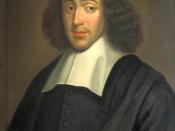The Enlightenment took place during the 18th century and was initiated by the renaissance. It was called the enlightenment because it was a period of new beginnings, in which new thoughts prevailed over old traditions. The Enlightenment was strongly influenced by the rise of modern science and the by the aftermath of the long religious conflict that followed the Reformation. The thinkers of the Enlightenment were committed to secular views based on reason or human understanding only which they hoped would provide a basis for change affecting all aspects of life and thought. It was an intellectual movement brought about by philosophers. The Enlightenment occupies a central role in the justification for the movement known as modernism. Modernism describes a series of reforming cultural movements in art and architecture, music, literature and the applied arts. The Enlightenment is held to be the source of critical ideas, such as freedom, democracy and reason as primary values of society.
This view argues that the establishment of a contractual basis of rights would lead to the market mechanism and capitalism, the scientific method, religious tolerance, and the organization of states into self-governing republics through democratic means. In this view, the tendency of the philosophes in particular to apply rationality to every problem is considered the essential change. From this point on, thinkers and writers were held to be free to pursue the truth in whatever form, without the threat of retribution for violating established ideas.
There were many important figures who contributed to the enlightenment through their ideas and written documents. Baruch Spinoza was a Dutch philosopher who is considered to have laid the groundwork for the 18th century enlightenment. Another key figure in the early Enlightenment was Dutchman, Balthasar Bekker. In his book De Philosophia Cartesiana Bekker argued that theology and...



Satisfactory.
OK effort but could expand a bit more.
0 out of 0 people found this comment useful.